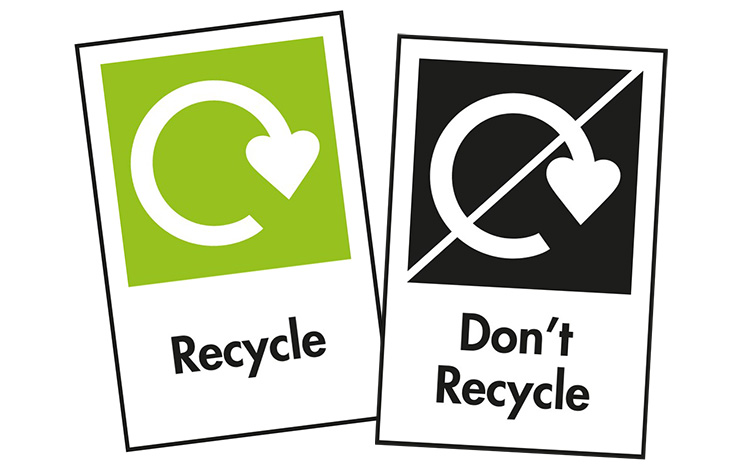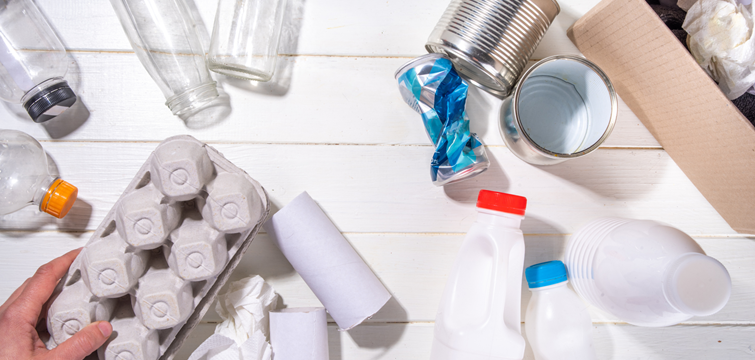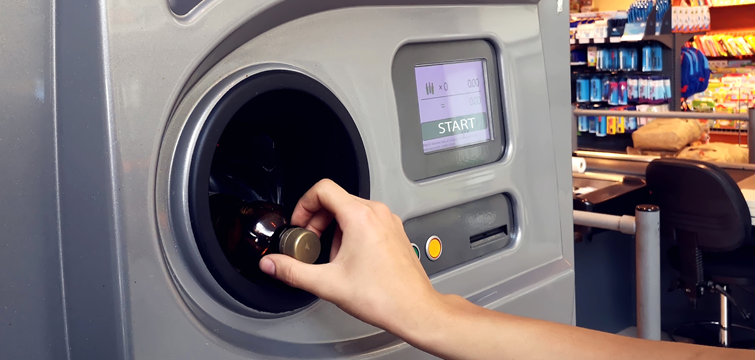The On Pack Recycling Label is launching a new binary labelling system in the New Year to increase clarity for consumers
The move follows the UK Governments’ favoured approach in the Extended Producer Responsibility consultations and supports achievement of The UK Plastics Pact recycling target. The labels are modelled on consumer research insights, conducted as part of OPRL’s Labelling Rules review.
OPRL developed and approved the new labelling after consultation with a widely drawn industry Steering Group that included Robbie Staniforth, head of policy at Ecosurety.
Ecosurety became the first compliance scheme to join OPRL in August 2018, enabling it to more effectively support members of both schemes.
Launching in January 2020
The new recycling rules will be launched in January 2020 and take account of UK recycling infrastructure’s ability to sort, process and find markets for packaging materials, as well as the availability of council collection services.
These changes also move the labelling scheme in line with ISO 14021 for self-declared environmental claims such as recyclability, matching OPRL’s PREP UK tool for packaging design.

The new rules move the majority of packaging into a binary labelling system i.e. “Recycle” or “Don’t Recycle”. As now there are a small number of exceptions for packaging dependent on bring site or front of store collections. Responding to extensive consumer insight research the new labels are simpler with a clear call to action.
This differs from the previous three categories which told consumers how likely it is that their local authority will accept specific packaging materials for recycling:
- Widely recycled (75% or more of UK local authorities collect that type of packaging).
- Check local recycling (between 20% and 75% of UK local authorities collect that type of packaging).
- Not currently recycled (fewer than 20% of UK local authorities collect that type of packaging).
Robbie Staniforth commented "It was a pleasure to be on the working group charged with updating the rules. This marks excellent progress in the development of OPRL. The labelling system is vital to signpost consumers and indicate to packaging producers how modulated fees could work in an improved EPR regime."
Responding to consumer demands for clarity
Commenting on the move Jane Bevis, Chair of OPRL Ltd said "This move towards a binary label reflects both our wish to respond to consumer demands for clarity and the maturation of the UK’s collections system towards greater consistency."
"Our research shows that while 84 percent of citizens check on-pack labels for recyclability, it’s a split-second glance for a Yes/No decision. Our new “Recycle” and “Don’t Recycle” labels will ensure more packaging gets into the recycling stream and will improve quality at the same time. That’s essential if we are to deliver on targets like the Plastics Pact commitment to almost double recycling of plastic packaging by 2025. As a key supporter of the Pact, with OPRL labelling widely used by many participating brands and retailers to activate recycling, we want our labels to drive a step change in behaviour."
"We’re excited to be launching the new rules and supporting tools for members once the Christmas rush is over. This has been a tremendous collaboration between industry experts and materials bodies and will be a great leap forward."
A straightforward call to action
Peter Maddox, Director at WRAP commented "Clear labelling on packaging is crucial to encourage citizens to recycle more materials correctly, more often. So we wholeheartedly welcome this evolution of the successful OPRL system, which will give citizens a straightforward call to action over whether they can recycle an item or not. This is closely aligned with our ambition under The UK Plastics Pact (of which OPRL is a supporter) to meet a 70 percent recycling rate for plastic packaging and is a key milestone in our roadmap to achieving this by 2025."
"We are also pleased to see that the new system takes account of the entire recycling journey of a material, not just whether it is collected or not. This will help to ensure that packaging is designed for recyclability and maximise the opportunity for packaging to be recycled back into new packaging."
"OPRL are an important strategic partner for WRAP and we will continue to work closely with them as the roll out of this new system takes shape."
If you would like to find out more about how your organisation can benefit from the OPRL system of clear consumer information, please contact our team.

Ben Luger
Marketing projects specialist
Ben joined the team at the beginning of 2015 and helps drive marketing communications and projects for Ecosurety, including project managing the launch of the Ecosurety Exploration Fund and website content development.

Latest News

Draft packaging EPR regulations sent to European Union and World Trade Organisation
By Louise Shellard 02 May 2024
European Parliament introduce regulations to improve packaging sustainability
By Louise Shellard 30 Apr 2024
Q1 2024 recycling data reveals good performance in most materials
By Nigel Ransom 29 Apr 2024
Deposit Return Scheme for all UK nations set for 2027
By Louisa Goodfellow 26 Apr 2024
